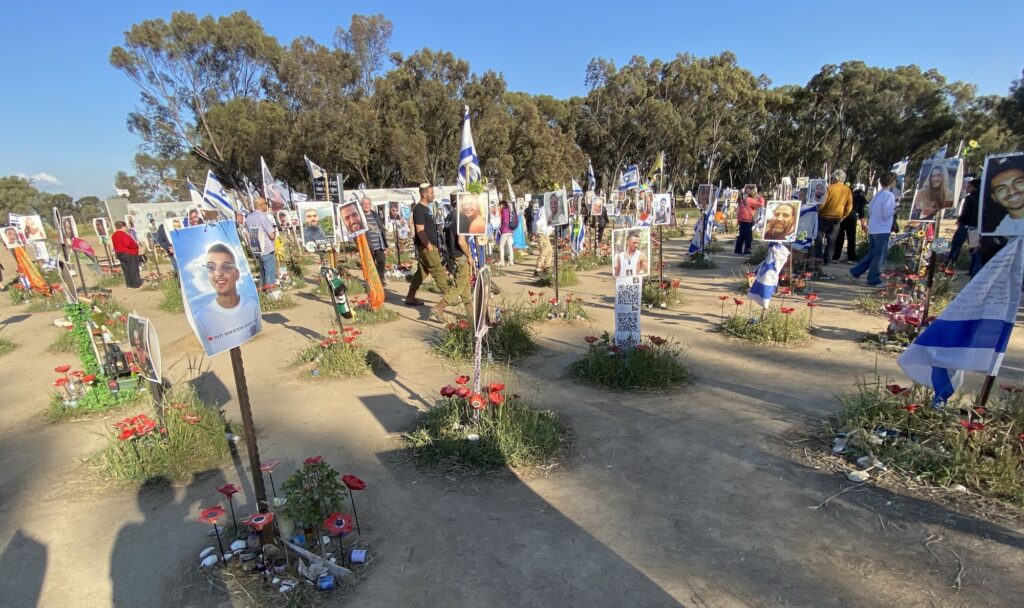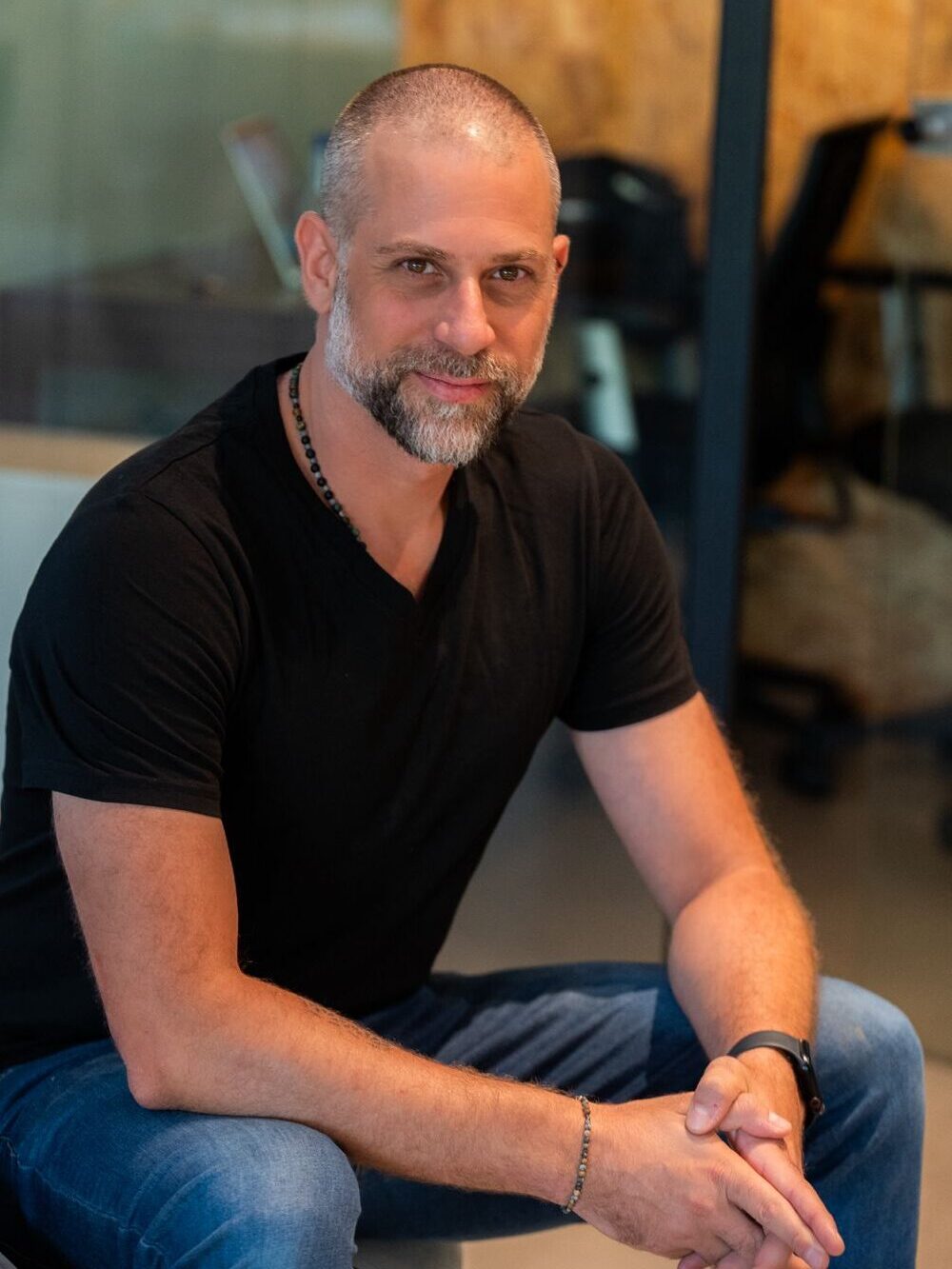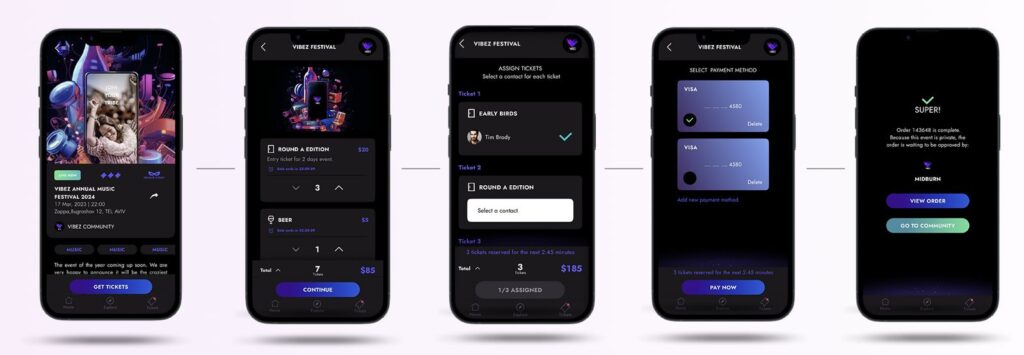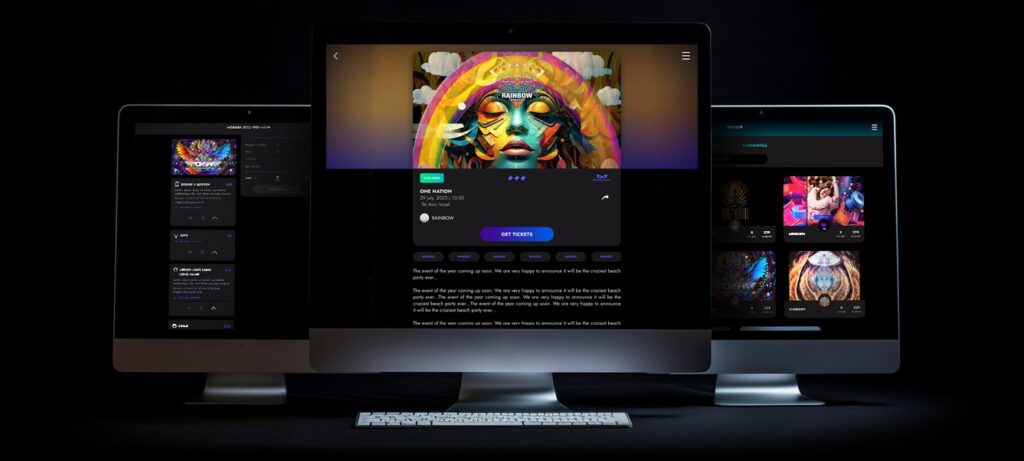“We will dance again” has become an Israeli mantra of hope and resilience following the massacre at the Nova music festival on October 7, when Hamas terrorists brutally slaughtered 364 people at the dance party and kidnapped dozens more to nearby Gaza.
Vibez, a unique, young platform for music events, is determined to help Israelis do just that – with major input from a famous Israeli DJ whose son was one of the victims of the Nova attack.

The platform is available in app and browser form, and operates as a portal for private communities for specific events, which anyone can apply to join. The platform serves as a complete environment for each event, with social media features, member offers and ticket sales.
“We built an ecosystem for advanced communities that does much more than just ticketing,” Dovev explains. “We do the whole aspect of member management.”
And no other platform in the world, he says, has the same range of features as Vibez.
One of the main communities on the platform – with more than 10,000 members – is operated by David Abramov, better known in the Israeli music world as DJ Darwish, who is also a member of the Vibez advisory board.
Abramov’s 20-year-old son Laor was initially declared missing in the chaotic aftermath of the Nova attack and tragically later found to be among the dead.
Launched just two weeks before the massacre at the Nova festival on October 7, Vibez co-founder and CEO Saar Dovev tells NoCamels that it took until mid-March for Israeli events to begin happening again.
Nova was a prime example of a community-based music festival, Dovev says.

Each community – be it created by an individual, specific festival or club – has its own pages on the platform, with listings for upcoming events, messages from the operators and special offers exclusive to that group.
Would-be members ask to join the specific community in order to access their features and, once approved, can interact and receive often exclusive details of upcoming events.
Dovev explains that each community can also define the levels of membership within it, such as premium or VIP, set up event promotions or even just send messages to its members. A social media aspect, allowing members to chat, is also in development.
Sign up for our free weekly newsletter
Subscribe“We are a little bit like Meetup,” Dovev says, referring to the global forum for people to find others in their immediate vicinity who share their interests, “but for nightlife, festivals, parties – everything to do with culture.”
Dovev set up Vibez in late 2021 with co-founder Yael Dovev, who is the company COO and also his wife, whom he fondly refers to as his “partner in crime.”
An experienced entrepreneur in the event industry, Dovev had created ticketing platform EventBUZZ more than a decade ago, but came to realize that as events of all kinds were building communities around themselves, they would need a dedicated home to manage all their interactions.
“Communities became a big thing everywhere, in every segment of life,” he says.
The founders funded the development of the platform themselves, with no external investment and a small team to write the code and develop the software themselves.
“I’m very proud of the fact that we are a bootstrap company, and we reached the milestone that we have reached,” Dovev says, adding that Vibez “didn’t spend a shekel on marketing.”
That milestone includes some 100,000 users in Israel and an app that he says has been downloaded by more than 10 percent of that number – making it the 15th most popular app in the country in less than a year.

Although currently operating primarily in Israel, the platform has also expanded internationally with events in Finland and Thailand, and has already established itself as a firm fixture in the latter.
Vibez is also hopeful that a large music festival in Europe will be using the platform in the near future, and has its sights set on the US, where it has already registered the company.
Although the emphasis is on music events, Dovev says the platform is suitable for any kind of cultural experience.
“If it has culture, if it has music, sound, art, movement, it’s relevant for us,” he says.
Related posts

Rehabilitation Nation: Israeli Innovation On Road To Healing

Harnessing Our Own Bodies For Side Effect-Free Weight Loss

Israeli Device Is New, Drug-Free Solution For Men Coping With ED




Facebook comments